Twelve months ago we set ourselves a mission. To find innovators who are building technology that will reduce emissions and accelerate decarbonisation - right here in the Middle East.
The response was phenomenal. More than 500 businesses operating across the region came forward - and now, after an intense selection process, we have chosen our ‘Future50’.
These are the 50 most innovative climate tech creators we believe are going to make the greatest impact when it comes to solving the climate crisis.
And as we stand just days away from the world’s most important climate conference - COP28, taking place here in the UAE, we are excited to shine a light on them.
The PwC Net Zero Future50 - Middle East report showcases the range, diversity and vibrancy of climate innovation in the region, and discusses the challenges founders face in their ambition to grow and scale.
While it’s clear that the ecosystem required to accelerate local growth in the development of climate technology has some way to go, our chosen 50 entrepreneurs represent hope and ambition when it comes to efforts to solve the climate crisis in our region. We hope they inspire you as much as they do us.
Please join us in congratulating the following companies for making the final cut. Here’s to a bright and sustainable future for all.
f50 pwc middle east
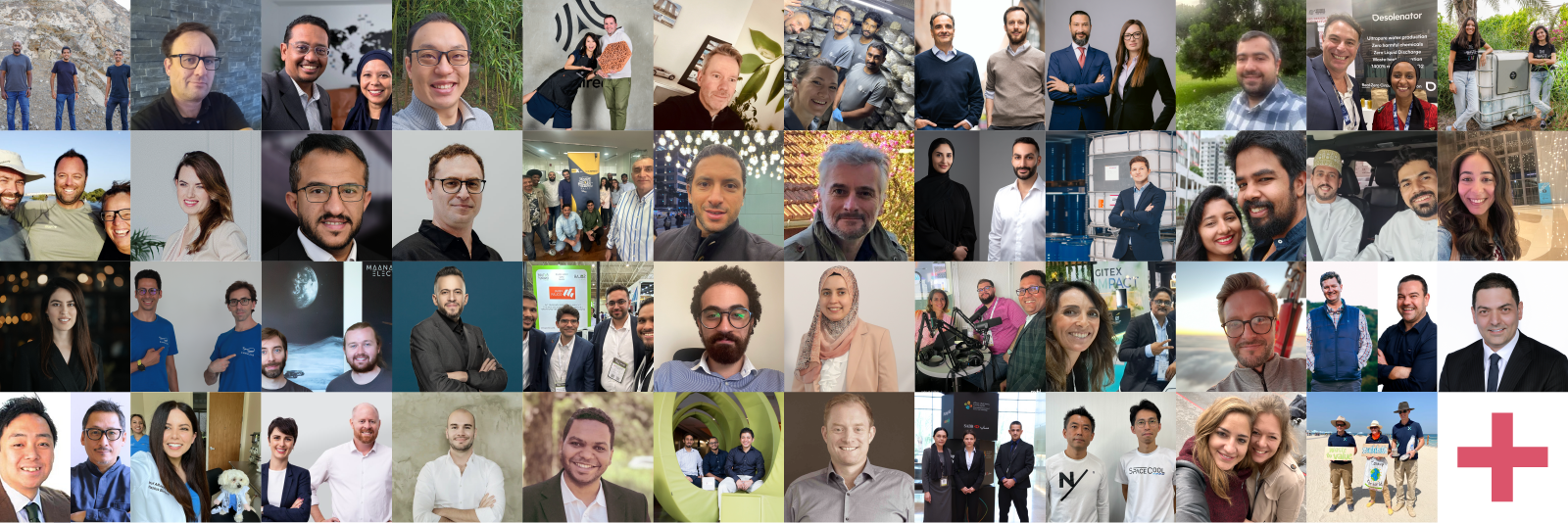
Key headlines:
Climate tech is defined as technologies explicitly focused on reducing greenhouse gas emissions, or addressing the impacts of global warming. The sectors of focus are based on the PwC climate tech taxonomy. Learn more at PwC State of Climate Tech.
The PwC Middle East Climate Tech report 2023 identified two trends happening within climate technology for the region. First, Middle East investors are investing heavily in climate technology around the world, bucking the global investment slowdown. The report shows that the Middle East players spent about US$5 billion on climate tech-related transactions globally in the year to end-September 2023, almost triple their estimated spending of $1.8 billion in 2022. Secondly Looking inwards, since 2018, all investors globally have spent about US$1.85 billion on climate tech funding inside the Middle East. In respect to the sectoral priorities, easily the largest share of the funding has gone to companies working on technologies relating to Energy, Mobility and Transport, which are key sources of carbon emissions. These sectors received about US$1.4 billion of the US$1.85 billion total funding since 2018. Spending on Food, Agriculture and Land Use accounts for most of the rest. With the help of these investments climate tech innovators in the Middle East are helping reduce emissions and accelerate decarbonisation.
Like the climate investment sectors, companies in the Net Zero Future50 - Middle East are concentrated in a few sectors: Industry, Manufacturing and Resource Management (IMRM) make up about 22% of the total list, with Energy a further 20%. These are followed by the Food, Agriculture and Land Use (FALU) sector with 18%. Companies in these three sectors, therefore, account for about two-thirds of the total. The prevalence of the Food, Agriculture and Land Use plays more to the need for domestic sustainability and food security for the region.
Of the 50 companies selected in the Future50, 26% have female-only founders, while 32% have mixed-gender founders. The female share is even higher – at 36% – if you exclude companies not headquartered in the Middle East but only have operations in the region.
Our analysis also shows that almost half of the founders of the companies in the Future50 are between 30 and 39 years of age, and a third is in the 40 and 49 year old age category, which bodes well for the region as, globally, the most successful exits of high venture capital-backed, hi-tech and patented start-up is around 46 years old.1
The COVID-19 pandemic led to a sharp drop in greenhouse gas emissions globally, but the fall was temporary. In 2021, the emissions were back – above pre-pandemic levels – rising across all sectors. By the end of 2022, the global economy produced 36.8 gigatonnes of carbon dioxide (Gt of CO2) – an increase of 0.9% over 2021 and 6% higher than in 2020.2
While the emissions growth continues, it has slowed down due to declining economic growth in some countries, higher interest rates and inflation, and disruptions to traditional fuel trade flows. At the same time, there has been progress in addressing climate change, including deploying clean energy technologies, such as renewables, electric vehicles (EVs), and heat pumps. The International Energy Agency estimates that these technologies helped prevent an additional 550 metric tonnes (Mt) in CO2 emissions. Yet the goal of reaching net zero emissions by 2050, as set out in the 2015 Paris Agreement, remains elusive. And for the Middle East, climate change has very tangible consequences, including growing water shortages and drought risks.
The issues have prompted significant pledges by governments in the Middle East and North Africa region (MENA), committing to net zero emissions goals or announcing a range of other targets aimed at reducing fossil fuel dependency. This is a particularly complex topic for the region, given its role as a major producer of hydrocarbons. At the same time, the two successive COP summits taking place in the region - COP28 in Dubai, UAE, in November 2023, a year after the summit in Sharm El-Sheikh, Egypt – highlights the central importance of the region’s efforts to mitigate climate change.
To help understand the potential abatement of the eight sectors we analysed Middle East greenhouse gas (GHG) emissions to better understand which industries in the region have the biggest potential for impact through decarbonising technologies. We utilised data from across multiple external climate data sources3 and introduced mapping to align to the PwC State of Climate Tech taxonomy to understand their relative emissions contribution.4
Leveraging established global methodology we assigned potential reduction impact across the five emitting sectors: Built Environment; Energy; Food, Agriculture and Land Use (FALU); Industry, Manufacturing and Resource Management (IMRM); and Mobility and Transport. We also looked to external sources to assign ‘a potential to remove GHG emissions’ to cross-sector themes such as GHG Carbon Capture and Storage, and Climate Change Management and Reporting, which have been given a Net Zero Future50 allocation based on their potential to remove GHG emissions. We also allocated an indicative abatement potential for Financial Services.5
The approach shows that the Middle East Energy and Industry, Manufacturing and Resource Management sectors account for third quarters (75%) of GHG emissions, which is reflected in the Future50 where the same two industries lead the sectoral representation of the report with almost half (42%) of companies featured are from these sectors.
The Future50 allocation to the Food, Agriculture and Land Use sector is higher than estimated emissions at almost 20%, despite only contributing 2% of GHG emissions in the region. This reflects the climate and sustainability challenges in a region that faces food security challenges and is vulnerable to supply chain disruption. Food agricultural technology can help make food supplies more reliable, stimulate innovation, cut deficits and benefit the environment at the same time.
Spotlight: Female climate tech entrepreneurs in the Middle East are playing a leading role
One of the biggest and most unexpected findings when looking at our PwC Net Zero Future50 - Middle East is the significant proportion of women in leading roles in climate tech entrepreneurship in the region.
The female founders on our list come from different backgrounds - from finance and the corporate world to government and fashion. They took the leap to find their own start-ups driven by a real sense that they could significantly contribute to the efforts to address climate change.
Women have historically been underrepresented in leading business roles in the Middle East region. One survey has found that the gap in ownership of established businesses between men and women in MENA is more than 40% — the largest worldwide.6 Around 60% of female participants in the study said that they relied on savings as their primary or only source of capital, while 30% felt uncomfortable or unfairly criticised when approaching banks for loans.
In the face of the funding gap and other factors mentioned earlier, it is remarkable that so many women in the Middle East region have taken the plunge and are playing such a prominent role in addressing climate change.
So what drove them to build their start-up?
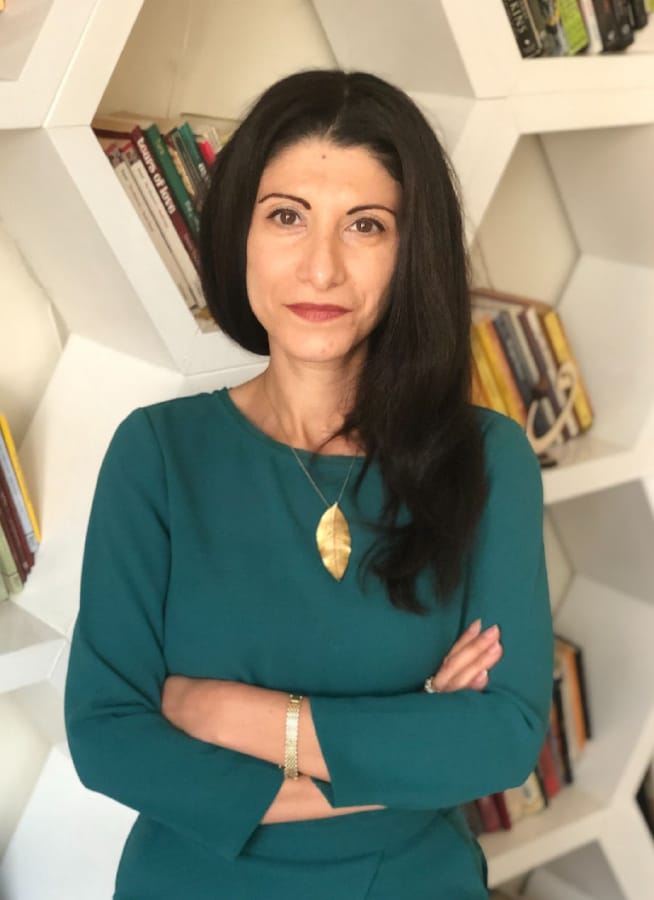
“I was meditating at a lion conservation in South Africa, reflecting on how if nature were a tech start-up, it would be valued more than all the unicorns combined and 1.5 times global GDP, and yet paradoxically, it faces around a US$600 billion annual investment gap.”
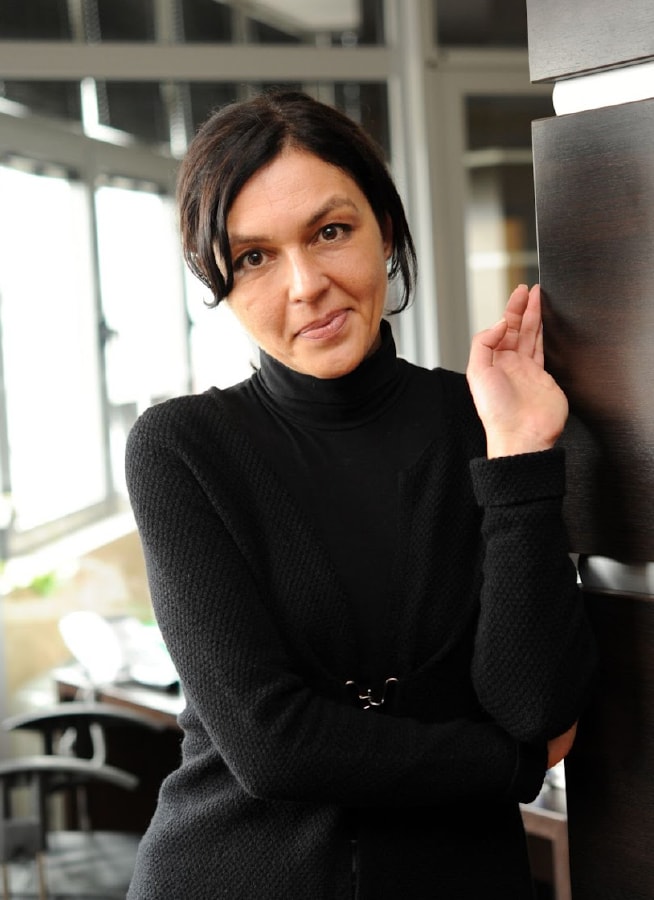
“We knew our technology could help solve current limitations and kept going, motivated by the huge business demand for such a solution and the positive impact that we can make for generations ahead.”
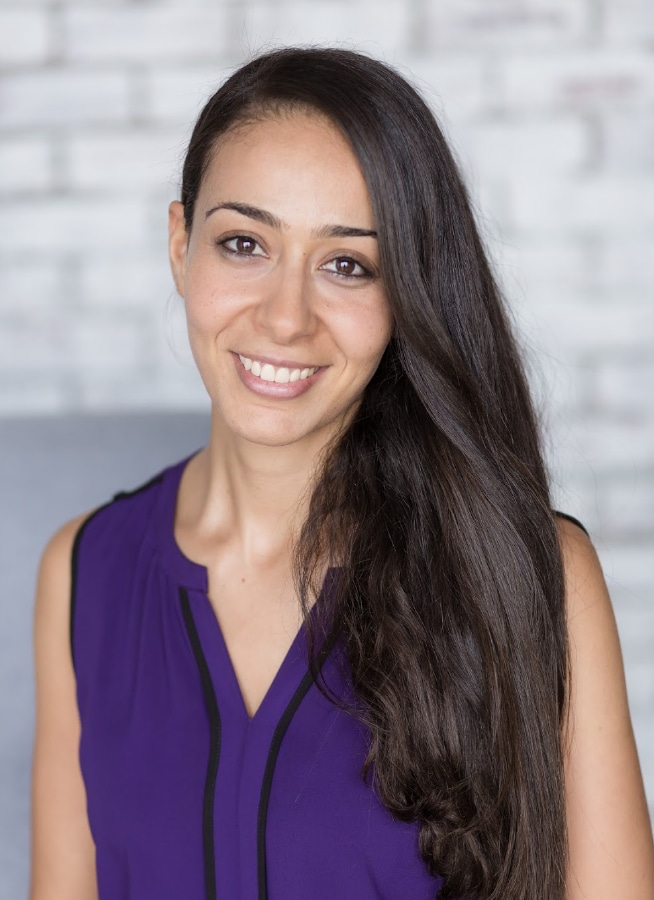
“While there are thousands of initiatives and actions across institutions, organisations, and civil societies, it's very hard today to understand the link between those initiatives and the impact they have on the global net zero journey. We started to address the gap that I've seen in the industry. What could help leaders make better decisions, faster decisions and more efficient solutions overall?”
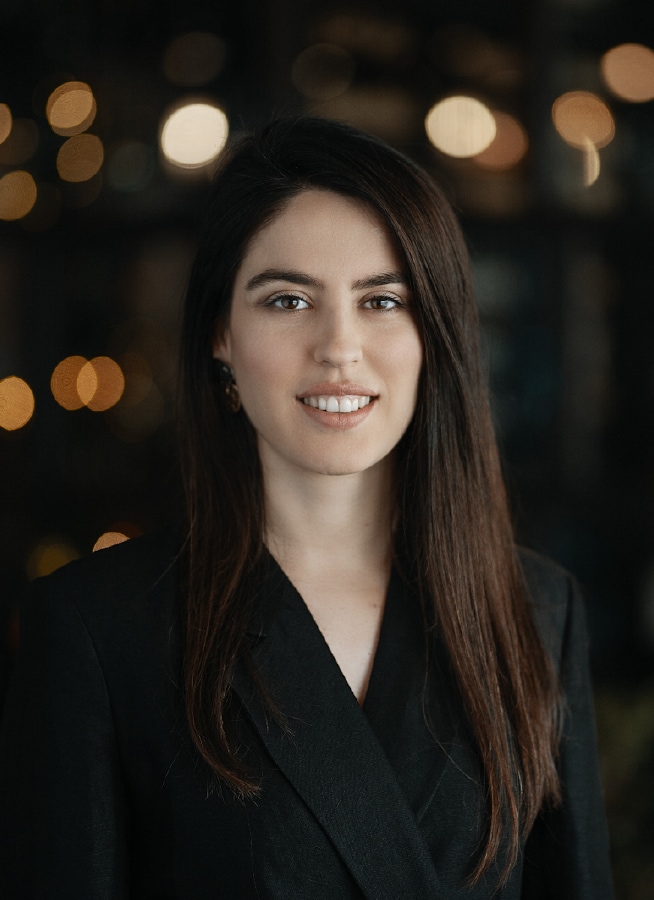
“I ventured into the realm of climate and sustainability driven by my fervour for sustainable building and mitigating climate change. The weight of these global challenges consumed my thoughts, compelling me to take action on both a global and local scale.”

“We personally wanted to give back not only to the country but also to our own family and our own children. This is us trying to care for them…it's about the forest itself, and whether that's providing towards climate change. That's the real impact. It's not about the numbers and the drones.”
PwC Net Zero Future50 - Middle East
This report looks at examples of breakthrough ideas and their underlying technologies operating in the Middle East across the climate tech landscape; covering Built Environment; Climate Change Management and Reporting (CCMR); Energy; Financial Services; Food, Agriculture and Land Use (FALU); GHG Carbon Capture and Storage (GHG CCS); Industry, Manufacturing and Resource Management (IMRM); and Mobility and Transport.
The below shows the split of the Net Zero Future50 - Middle East companies across different sectors and cross cutting themes, which were apportioned approximately according to their contribution to GHG emissions.7
Built Environment (residential buildings, commercial buildings and infrastructure) is one of the most significant contributors of emissions globally, accounting for around 37% of global CO2 emissions in 2021, although for now the figure is lower in the Middle East, at about 6%, based on our data.8 These emissions come from both the materials used in buildings and the emissions produced during their maintenance and operation (i.e heating, cooling, lighting). Middle Eastern countries are investing in gigaprojects like NEOM and the Red Sea Project in Saudi Arabia and Expo 2020 Dubai in the United Arab Emirates to upgrade infrastructure, foster economic growth and tourism, and support a growing population. However, these investments – which we estimate will total about US$2 trillion by 2035 – are primarily being made as government projects, and rarely include climate tech start-ups.
According to our analysis of Pitchbook data9, since 2022, there have been no deals with Built Environment climate tech start-ups in the Middle East. For comparison, globally, about 6% of total climate tech investment went towards the Built Environment sector. Accordingly, the Middle East has room to grow in supporting start-ups in this sector.
Early warnings for climate disasters can save lives, particularly as extreme heat increases in the Middle East.10 Technologies, such as satellite imagery and AI, can provide governments and companies with warning signs and optimised plans for addressing disasters. Although Climate Change Management and Reporting (CCMR) is crucial for future disaster preparedness, investment in the sector is low. The share of Middle Eastern investment in CCMR start-ups is at par with the global average of about 2%.
The Middle East has leveraged its predominance in energy to provide outsize support to energy - focused climate tech companies. In fact, 40% of Middle Eastern climate tech investment in the last 12 months has gone toward innovations in the energy sector.
Like the Built Environment sector, no investment deals have manifested for Middle Eastern financial services climate tech start-ups since Q1 2022. However, this is fairly in line with the global average, with a share of only about 2% of total investment across regions going towards financial services. As net zero and ESG goals gain prominence in society, start-ups in the Financial Services sector are investing and creating platforms to encourage sustainability across a wide variety of industries.
Making advances in agricultural technology is a major priority for Middle East countries, which depend heavily on imported food and are therefore vulnerable to supply chain disruptions. For example, in 2019, Saudi Arabia imported US$10.5 billion of key agri-food products and exported just US$1.7 billion — a deficit of US$8.8 billion.11 Agricultural technology can cut such deficits, make food supplies more reliable, and stimulate innovation, in addition to benefiting the environment.
Investment in Food, Agriculture and Land Use (FALU) companies was US$265 million over the past two years. Across a broad array of domains, Future50 start-ups are making needed technological advancements in agricultural technology.
Since 2018, there has been no Middle Eastern investment in GHG Carbon Capture and Storage (GHG CCS) start-ups. However, the global share of investment in this sector is only about 2% over this period, all of which comes from European investment. Although GHG CCS technologies vary in their maturity, the Middle East is poised to take advantage of these solutions. There are already two large-scale carbon capture, utilisation, and storage facilities operating in the region, including Abu Dhabi National Oil Company (ADNOC), which aims to capture five million metric tons of CO2 annually from its natural gas processing plants by 2030.12
The Middle East invests about 4% of its total climate tech investments in the Industry, Manufacturing and Resource Management (IMRM) sector, which is only about a third as much as the global share allocated towards this sector. However, these limited investments are not commensurate with the level of innovation in this space.
The International Energy Agency estimates that to reach net zero by 2050, the global Mobility and Transport sector will need to reduce emissions by more than 3% per year until 2030.13 This will require stopping and completely reversing the industry’s current trajectory, which has an average growth in emissions of 1.7% per year.
On average, the share of investments the Middle East has made in Mobility and Transport related climate tech has been roughly equivalent to the global average of 48%.14 However, this has fluctuated from year to year: investment in Mobility and Transport decreased from 56% of overall investment in 2022 (about US$400 million) to just 27% in 2023 (about US$28 million). That said, start-ups with promising decarbonisation offerings provide an opportunity for investors to increase their focus on this highly emissive sector.
Download the full PwC Net Zero Future50 - Middle East report here
Read the 2023 Middle East Climate Tech report here
References
1- Source Statista https://www.statista.com/statistics/1220775/average-founder-age-successful-exit-usa/
2- Source: “CO2 emissions in 2022,” International Energy Agency, March 2023. (https://www.iea.org/reports/co2-emissions-in-2022#)
3- See report appendix for PwC analysis, methodology and sources
4- Taxonomy of PwC State of Climate Tech https://www.pwc.com/gx/en/issues/esg/state-of-climate-tech-2023-investment.html
5- See report appendix for PwC analysis, methodology and sources
6- Source: Lynn Mounzer, “Overview of female entrepreneurship in the Middle East and North Africa region,” Wilson Center, March 8, 2022. https://www.wilsoncenter.org/blog-post/overview-female-entrepreneurship-middle-east-and-north-africa-region
7- See report Appendix for more details.
8- Source: CO2 emissions from buildings and construction hit new high
9- Source: ‘PwC State of Climate Tech 2023, analysis of Pitchbook Data
10- 'Source: See for example, Timothy M. Lenton et al., “Quantifying the human cost of global warming,” Nature Sustainability, 2023, Volume 6. https://doi.org/10.1038/s41893-023-01132-6
11- Source: “How the Middle East can promote agritech,” PwC Strategy& Middle East. (https://www.strategyand.pwc.com/m1/en/strategic-foresight/sector-strategies/consumer-retail-industry/promoteagritech.html)
12- Source: https://www.iea.org/reports/ccus-in-clean-energy-transitions/regional-opportunities
13- Source: Data from International Energy Agency. See “Energy system: Transport,” IEA https://www.iea.org/energy-system/transport#:~:text=In%202022%20global%20CO2,around%2070%25%20of%202019%20levels
14- Source: ‘PwC State of Climate Tech 2023, analysis of Pitchbook Data
Contact us












